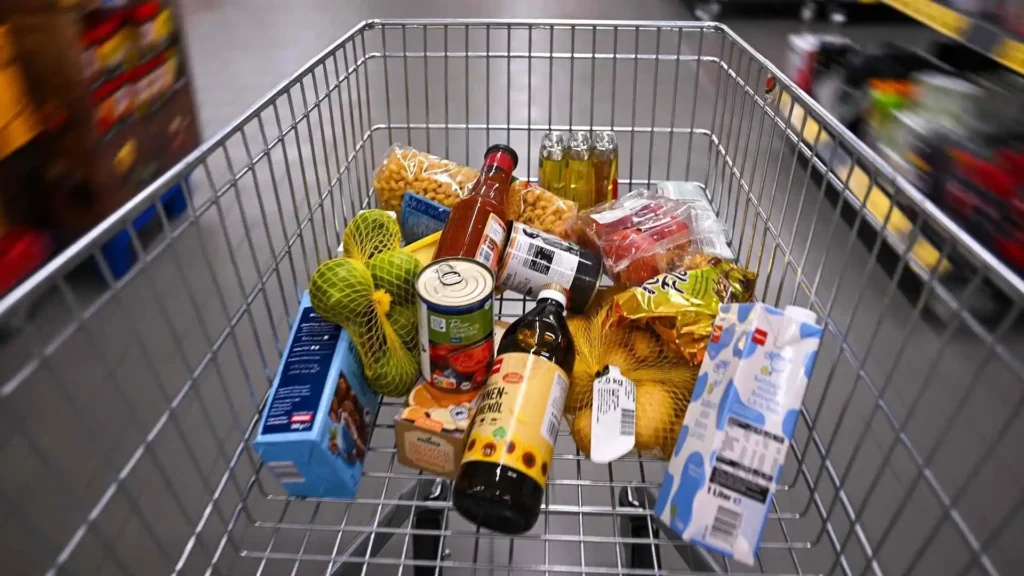Shopping for groceries can often feel like a daunting task, especially when prices seem to rise at every turn. Whether you’re living on a tight budget or simply looking to save a little extra, understanding how to stretch your grocery dollars further is a skill anyone can master. After all, food is a necessary expense, but with a bit of savvy, it doesn’t have to break the bank.
Having been around the block a few times and watched grocery prices skyrocket over the years, I’m here to share what I’ve learned—and trust me, it’s more than just clipping coupons. The tricks I’ll share come from a combination of research, common sense, and a bit of real-world experience. So, let’s get started!
The Basics: Understanding Where Your Money Goes
Before diving into tips and tricks, it’s important to understand where your grocery budget tends to get blown. Here are the typical culprits:
- Processed Foods: Packaged, pre-cooked, and ultra-processed items often carry a premium price tag. Sure, they’re convenient, but they’re also laden with added sugar, sodium, and preservatives.
- Fresh Produce: Fruits and vegetables can be a significant part of your grocery bill, particularly if you’re not buying seasonally.
- Brand Loyalty: We’ve all got our favorite brands, but sometimes store brands or generic options are just as good, if not better.
- Convenience: Pre-cut veggies, ready-made meals, and individual-sized portions are always going to cost you more.
Tip 1: Plan Your Meals, and Plan Them Well
One of the most effective ways to save money is by planning your meals for the week. When you know exactly what you’re making, you’ll avoid buying extra items that you don’t need or that end up rotting in the fridge.
How to do it:
- Start with what you have: Look at your pantry and fridge before creating your meal plan. This helps you use up what you already have and avoid duplicate purchases.
- Make a shopping list: Stick to it! Impulse buys can seriously derail your budget. Research shows that shopping with a list can reduce unnecessary purchases by up to 23%.
- Embrace batch cooking: If you have the time and inclination, prepare larger batches of meals and freeze them for later. This not only saves money but also time.
Tip 2: Stick to Your Grocery List, But Be Flexible
Here’s where a bit of flexibility comes in. If your grocery list is too rigid, you might miss out on seasonal sales or great deals on products you actually use. But if you don’t have a plan, well, you’ll wind up buying a bunch of random stuff you don’t need.
How to do it:
- Check sales and store circulars: Many stores release weekly flyers with discounts on specific products. If you plan your meals around those sales, you’ll save significantly.
- Don’t be afraid to buy in bulk: For products you use regularly (rice, beans, pasta), buying in bulk can save you a lot of money over time. Just make sure you’re not buying more than you can use before expiration.
Tip 3: Shop Seasonally and Locally
In-season fruits and vegetables are typically cheaper than their out-of-season counterparts. And local produce is often fresher and less expensive than imports, especially if you’re buying directly from farmers’ markets or local co-ops.
How to do it:
- Find out what’s in season: In the spring and summer, expect to see deals on tomatoes, berries, and cucumbers. In the fall and winter, root vegetables like squash, sweet potatoes, and carrots take center stage.
- Farmers’ markets: These markets can often offer better deals on fresh produce than large grocery chains. Plus, you’re supporting local farmers!
Tip 4: Buy Store Brands and Generic Products
Brand-name products often come with a markup simply for the name on the label. Store brands, on the other hand, are often made in the same facilities as the more expensive brands, and their quality is generally comparable.
How to do it:
- Start with basics: Items like flour, sugar, canned beans, and even dairy products are usually just as good in generic form.
- Don’t be afraid to experiment: Try store brands in different categories, and you may find that you actually prefer them. Trust me, the only difference you’ll notice is the price.
Tip 5: Reduce Waste—Use Every Part of Your Food
This is a big one. Wasting food is like throwing money in the trash. The good news is there are easy ways to reduce food waste, starting with better storage and mindful cooking.
How to do it:
- Store leftovers properly: Make sure you’re storing food in airtight containers and using it up within a few days.
- Get creative with scraps: Vegetable peels, stems, and bones can be used to make broths and stocks. You’d be amazed how many recipes you can create with what might normally be tossed out.
- Freeze extras: If you have a surplus of something (bread, fruits, vegetables), freeze it for later use.

Tip 6: Shop Smart Online and Use Technology
In today’s digital age, you have a plethora of tools at your disposal to make grocery shopping easier and more affordable.
How to do it:
- Price comparison apps: There are plenty of apps that let you compare prices at different stores to ensure you’re getting the best deal.
- Online grocery shopping: Sometimes online grocery stores offer better prices than physical stores, and many even have coupons you can apply at checkout. Plus, you avoid the temptation of impulse buying.
- Cashback apps: Look for apps that give you cashback on grocery purchases, such as Ibotta or Rakuten.
Tip 7: Avoid “Convenience” Products
It’s easy to get lured into buying pre-chopped vegetables, pre-cooked meals, or individually packaged snacks. While these items save time, they also cost a lot more than buying the raw ingredients yourself.
How to do it:
- Do it yourself: The effort of cutting up veggies or preparing meals from scratch might take a bit longer, but the savings are substantial. Plus, it’s often healthier!
Tip 8: Be Mindful of Your Portions
Serving sizes in packaged foods can often be larger than what we actually need. Many times, people buy too much food and end up tossing leftovers, contributing to food waste. By adjusting your portions to what you actually eat, you’ll save money and reduce waste.
How to do it:
- Control portions: Use smaller plates or bowls to help control how much food you put on your plate.
- Use leftovers for lunch: If you have a hearty dinner, pack the leftovers for lunch the next day—no need to buy an expensive sandwich or salad.
Tip 9: Grow Your Own
You don’t have to have a full-fledged garden to grow your own food. Even a few potted plants on a balcony can produce herbs, tomatoes, or leafy greens throughout the season. Growing your own food is not only cost-effective, but it’s also rewarding.
How to do it:
- Start small: Begin with herbs or easy-to-grow vegetables like lettuce or spinach. These don’t require a lot of space or expertise.
- Save seeds: You can often save seeds from fruits and vegetables you buy in the store to plant in your garden.
A Few Words of Caution
Now, while these tips can help you save money, there are a few things to be aware of. For instance, when buying in bulk, make sure that you actually have room to store the items, and that you’ll use them before they expire. Also, not all store brands are equal, so it’s worth trying a few before you commit to switching entirely.
Real People, Real Opinions
Here’s what some folks from around the world have to say about saving money on groceries:
- Emma, 34, New York, USA: “I used to buy everything organic, but I switched to buying in-season produce. It saved me so much money without compromising on quality. Plus, I feel like I’m eating with the seasons, which is kind of nice!”
- Raj, 45, Mumbai, India: “I buy rice and pulses in bulk. The savings add up over time. I’ve also started using the leftovers more creatively. My grandmother taught me how to make broths from vegetable scraps, and I’ve saved so much!”
- Lina, 50, Buenos Aires, Argentina: “I’ve been using online grocery delivery services. They often offer discounts and I find I buy less because I’m not tempted by things on the shelves. It’s a game-changer for me.”
- John, 67, London, UK: “I’ve always been the ‘stock up when on sale’ kind of shopper. But recently I’ve started growing my own herbs and veggies in my garden. It’s not just about saving money—it’s also therapeutic.”
- Fatima, 29, Cairo, Egypt: “I used to buy a lot of ready-made meals, but I switched to cooking from scratch. It’s cheaper, healthier, and surprisingly enjoyable. I’m more conscious of what I put into my meals now.”
In Conclusion
Saving money on groceries doesn’t require extreme measures or a drastic lifestyle change. By being mindful of your purchases, planning your meals, and making smarter choices, you can significantly reduce your food bill without sacrificing quality or health. It









